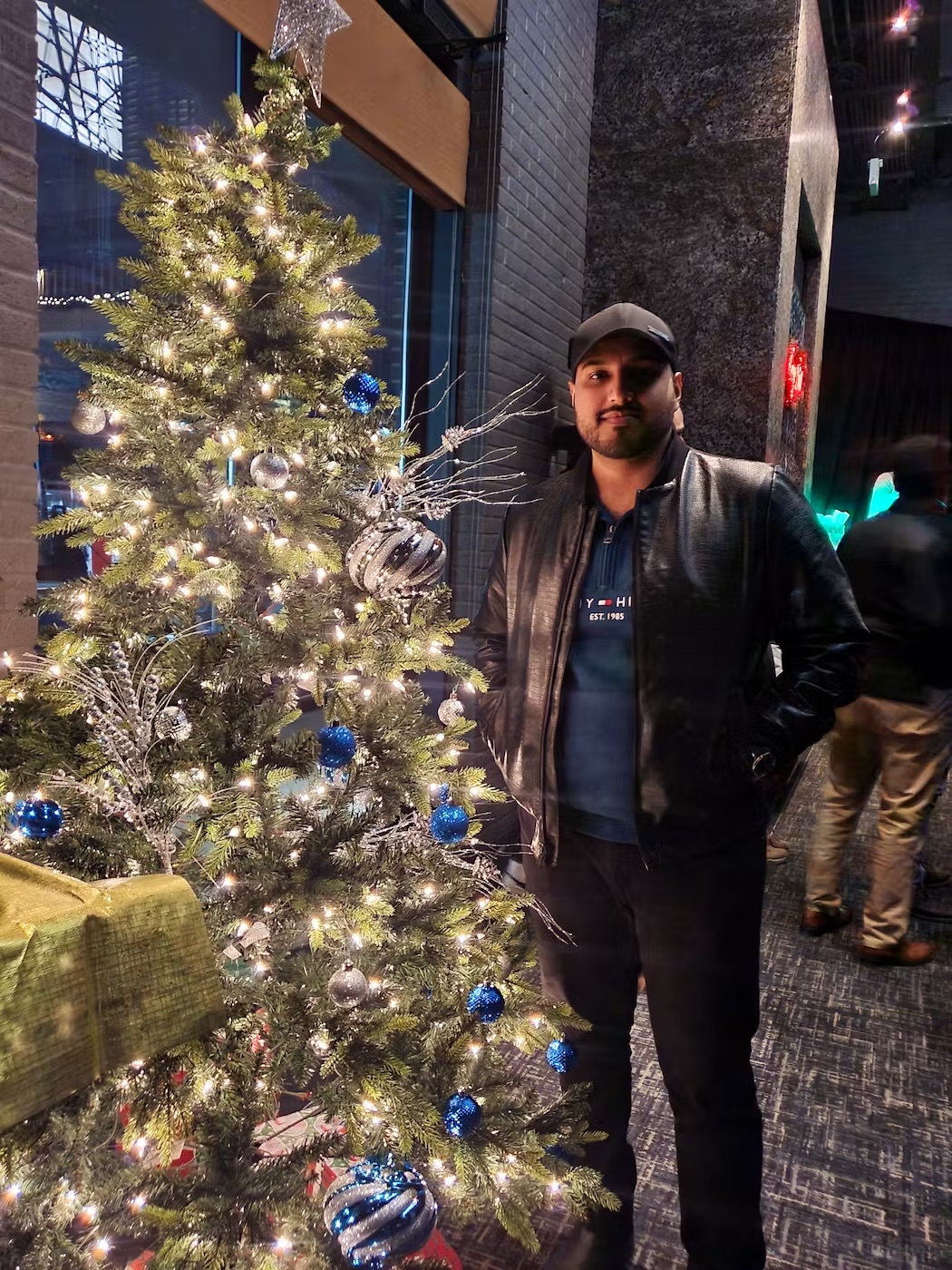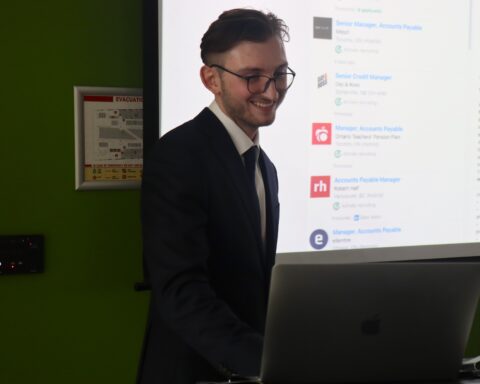For Muhammad Ali Raza, who landed in Newfoundland and Labrador from Pakistan to pursue a degree in business administration in the winter of 2015, the journey of becoming a new Canadian has been everything but smooth.
The stresses that international students face are well-documented, from mental health issues to the growing financial burden caused by the rising cost of living. To alleviate these, Ali Raza got a job at Tim Hortons immediately after settling in St. John’s, which he balanced with a rigorous academic programme.
Initially, he thrived.
He was promptly promoted at work, becoming a supervisor and then a part-time assistant manager. He completed his first semester’s coursework with a respectable GPA, and on top of it all, started playing cricket, quickly rising up the ranks and becoming one of the stars of the N.L. provincial team.
However, things were about to change.
Family first
“Life happens, things happen,” says Ali Raza, as he remembers one of the scariest periods of his life.
Thousands of miles away, in Saudi Arabia, his parents were completing Hajj — their Holy Pilgrimage to Mecca. It was the year of the Mina stampede, which resulted in the death of over 2,000 individuals.
After being unable to reach his family for a few days, Ali Raza took the matter into his own hands.
“To be honest, everyone assumed that they had fallen victim to the stampede. This was a very challenging time, mentally, and it became my duty to ensure the well-being of my family, so I emailed Memorial University to let them know that I needed to fly back home on an emergency basis,” recalls Ali Raza, who adds that he failed to receive a response from university officials regarding his case.
Although his family was safe, his departure had a ripple effect on his future trajectory as he navigated the challenges of establishing himself in a new country.
Besides grappling with homesickness, he faced setbacks such as an aggravated flat foot problem and a knee injury, causing a two-year delay in completing his degree.
Nonetheless, even if he had to slow down, he did not quit.
“Even through the worst phases of my life, I was always in good standing with the University,” says Ali Raza, who, also overcame his health challenges to keep playing cricket, representing N.L. as it battled on the field against other provinces, and joining the board of the provincial association as a vice president.
Front-line during the pandemic
Besides his sporting pursuits, Ali Raza was also very involved in the community.
Shortly after the 2020 pandemic hit the country, he actively worked in a front-line job.
“I worked for Paladin Security, and I was charged with screening everyone who came to the clinic we safeguarded, basically deciding whether they could come in or not based on their symptoms,” he says. “I stood up for the local community in the most difficult time, because I wanted to help out in any given way to the best of my ability.”
Ali Raza would receive a certificate of appreciation for his efforts at both the Health Sciences Center and the St. Clare’s Hospital.
It all seemed to be getting back on track, especially when, after graduating from Memorial, he was able to secure a job with the Canada Revenue Agency.
But it all came crashing down.

Gaps and appeals
As it turned out, Ali Raza’s application for his Post-Graduate Work Permit (PGWP) was not as simple as it might have been.
“Because of those gaps in the completion of my studies, that made it a lot more difficult than it should have been,” Ali Raza says, referring to his trip back home and time off due to injury.
“Officials were saying that I had not fulfilled the requirement of my student permit, which was uninterrupted full-time studies.”
This resulted in a series of appeals, and a lengthy process which affected his ability to work and receive health care.
Battered, he decided to return to Pakistan as he awaited a decision, and, to his surprise, even before he left the country, he was removed from his duties at the cricket association.
Pakistan
Ali Raza’s time in Pakistan was, at its best, full of agony. His parents were experiencing delicate health issues, and he couldn’t help but feel at a loss.
“After eight years of hard work, dedication, and lots of ups and downs, I was finally able to stand on my feet, looking forward to my professional career,” he says.

Yet, once again, things were about to take a drastic turn.
Only this time, for the better.
After exploring numerous options, Ali Raza was, ironically, in Saudi Arabia completing the Umrah pilgrimage with his family when a Canadian employer he had connected with submitted their application to the provincial government to employ Ali Raza under the Atlantic Immigration Program, boosting his dreams of returning to the country.
He would receive the approval one month later, ending his long wait to get back to Canada.
“I am not sure, maybe the prayers worked,” he says. “At the end of the day, I believe that life is all about experiences, and there is a reason why we go through what we go through.
“I hope that my story can help others and inspire them to not give up. What matters is that I am here, and my journey has a happy ending.”
Story and photos were produced in partnership between New Canadian Media and Saltwire.
Javier Ortega-Araiza has multiple global experiences as a storyteller and social entrepreneur having travelled to over 30 countries. Now based in Toronto, he is a published author in both English and Spanish."





